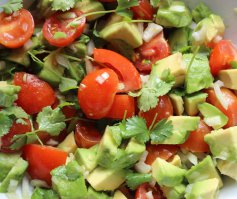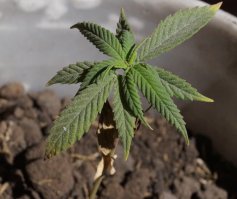 The latest research results are a revolution in the treatment of depression. Dr. Andrew Saul, a renowned scientist, together with Dr. Abram Hofer, a biochemist, conducted a number of studies and came to interesting conclusions, which we will present in the following article.
The latest research results are a revolution in the treatment of depression. Dr. Andrew Saul, a renowned scientist, together with Dr. Abram Hofer, a biochemist, conducted a number of studies and came to interesting conclusions, which we will present in the following article.
FIRST OF ALL - AN END TO SUGAR
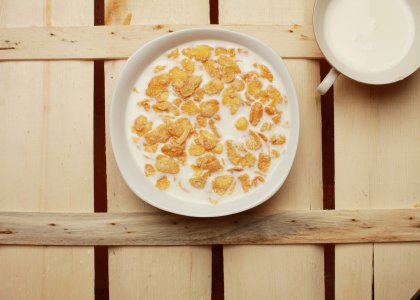 Sugar should be completely eliminated from our diet - it is a silent killer who deprives us of vitamins and minerals. This weakens the intestines, which are a very important protective element against diseases and viruses. Its anti-stress effect is only temporary, or in fact every ailment that affects people, by sugar is only intensified.
Sugar should be completely eliminated from our diet - it is a silent killer who deprives us of vitamins and minerals. This weakens the intestines, which are a very important protective element against diseases and viruses. Its anti-stress effect is only temporary, or in fact every ailment that affects people, by sugar is only intensified.
We should avoid all so-called "junk" food, colourful sweet drinks, all processed food, etc. We should also avoid all kinds of food. Our diet should mainly consist of fresh fruit and vegetables and whole grains, unrefined oils (mainly linseed), nuts, juices from fresh vegetables and fruits, legumes and fermented products such as pickled cucumbers. It is necessary to increase the amount of plant-based foods consumed, preferably fresh and thermally unprocessed.
B-COMPLEX AND NIACIN SUPPLEMENTATION
According to Dr. Hoffer mentioned above, for the proper functioning of our (whole) body, we should use about 1 capsule/tablet B-complex 3 to 5 times a day. The absolute foundation, however, is niacin (i.e. vitamin PP or B3), the deficiency of which always accompanies people who have some problems with the psyche. The dose proposed by Dr. Hoffer is about 3 grams of niacin per day, but it is worth remembering that this amount depends on each person. There are people who only need a few hundred milligrams, and for some these three grams will be insufficient. The former have a shortage of niacin and the latter need much higher doses than average people.
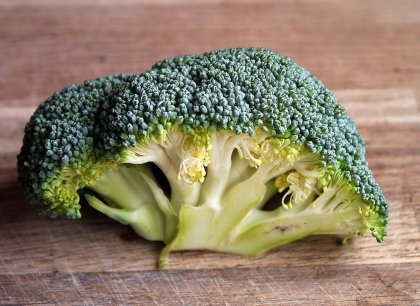
Niacin can be in the form of nicotinic acid (which has nothing to do with nicotin from cigarettes) and nicotinamide. Nicotinic acid, at higher doses, causes a feeling of warmth (so called flush) and when the feeling is too intense, it means that we exaggerate with the dose and the amount of niacin taken must be reduced. Nicotinamides do not give this effect, but they are more harmful to the liver. Flush one likes it and is unbearable for the others. The latter is recommended to take nicotinamides, but with regular monitoring of the liver condition, in order to take therapeutic breaks from niacin once in a while. Niacin in the form of nicotinic acid also has a great effect on the heart, because it lowers cholesterol. Both forms of niacin help in the treatment of joints.
ACCESS TO NIACIN
Niacin, compared to synthetic drugs, is much safer and more easily absorbed by the body. For 30 years of the study, not a single case of fatal overdose has been reported. The treatment should be carried out under constant medical care, in consultation with a doctor. If no doctor agrees to it, we should regulate its doses ourselves, starting with small amounts (e.g. 25 mg. 3 times a day) and increase them until we reach the optimal dose for our body. This is a safe way, but you can't expect the effects to occur overnight.
Niacin is a little harder to get than vitamin B-complex, because it is usually not in pharmacies, and once it is, it's on prescription. Therefore, it is worth getting acquainted with the offer of companies that sell dietary supplements, including capsule niacin. This is a simple form of access to niacin, but it can be relatively expensive, so you can simply buy nicotinic acid in the reagent shop and measure the dosage according to your own needs.
GENERAL CONCLUSIONS
 In addition to the above advice, we recommend taking any amount of sunlight! It is an invaluable medicine for depression, which provides our body with vitamin D. When it is winter or autumn and access to the sun is limited, you can supplement yourself with vitamin D, drink blubber or take advantage of light therapy.
In addition to the above advice, we recommend taking any amount of sunlight! It is an invaluable medicine for depression, which provides our body with vitamin D. When it is winter or autumn and access to the sun is limited, you can supplement yourself with vitamin D, drink blubber or take advantage of light therapy.
Movement is also very advisable, especially in the open air. Walking, rollerblades, skating, running, team sports.... All this should be a pleasure for us, that is, it should be an inseparable part of the fight against depression. Usually it doesn't cost a lot, but most often nothing - so why not take advantage of the benefits of sports lifestyle?
Finally, we offer 5 nutritional elements to help you fight depression:
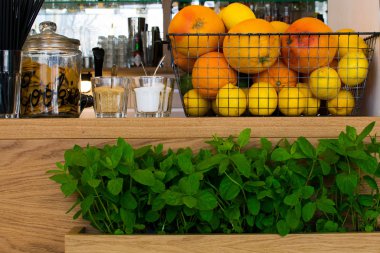 Firstly, reduce or eliminate sugar completely. You will save your health and money, and thus... your nerves.
Firstly, reduce or eliminate sugar completely. You will save your health and money, and thus... your nerves.- Secondly, do not eat junk food, processed food. Enjoy the gifts of nature - fruit and vegetables.
- Thirdly, take vitamin B-complex, especially niacin. Some people need more of it, others less, but everyone needs it ruthlessly.
- Fourthly, drink juices from freshly squeezed fruit and vegetables. They are tasty, healthy and inexpensive!
- Fifthly, eat cashews. One handful of cashew nuts contains as much tryptophan as some prescription drugs.


